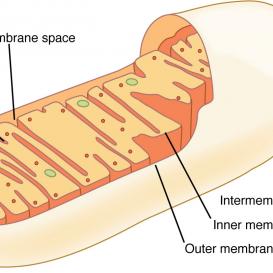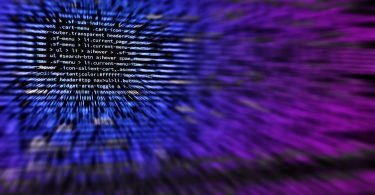What are mitochondria?
A mitochondrion is the ‘powerhouse’ for every cell in the body. They are present in the cells of almost all eukaryotic organisms and are essential for generating energy for each and every cell. In addition to this, they are important in other cellular functions such as apoptosis, cell signalling and cell growth. Without these unique organelles, our cells would not be able to survive.
Interestingly, mitochondria have their own individual circular genomes and replicate independently to cell division by binary fission, similar to that of bacteria. This genome is directly inherited from the maternal genome, which is why mitochondrial diseases are always inherited from your mum. Therefore the mitochondria in your cells are the same as your mother’s, which are also genetically identical to all of the woman in your maternal bloodline- hard to believe really! During fertilisation, the mitochondria from the sperm is degraded, meaning that the mitochondria and its DNA are inherited only from the egg. This has become an interesting topic in the news recently as IVF can now be carried out with three parents in order to prevent these mitochondrial associated diseases.
But where do they come from?
We now know they originate from our maternal bloodline but where did it all start? The answer is: billions of years ago, with an ancient symbiotic relationship between a nucleated cell which engulfed a prokaryotic cell capable of aerobic respiration.
Many scientific publications favour the theory that the bacterium Rickettsia prowazekii, which has the ability to respire aerobically, was likely to have been engulfed by a larger, more complex cell.

Image: http://www.biology.iupui.edu/biocourses/N100/2k2endosymb.html
This would give cells which could previously only generate energy through fermentation, the ability to use oxygen to generate energy. This was essential billions of years ago when the atmosphere was changing and more life was emerging. The number of photosynthetic cells was on the increase as organisms developed, increasing the concentrations of oxygen in the atmosphere, meaning that anaerobic respiration was no longer a viable method to generate energy. This meant evolution needed to step in.
Where is the evidence?
There is a huge amount of evidence to support the theory that mitochondria originated from a bacterium. The mitochondrion has many similar characterises to that of prokaryotic cells which differ significantly from those of eukaryotic cells:
| Prokaryote | Eukaryote | Mitochondria |
DNA | Circular chromosome | Linear chromosome | Circular chromosome |
Approximate Size | 1-10µm | 50-500µm | 1-10µm |
Mechanism of replication | Binary fission | Mitosis | Binary fission |
Ribosome size | 70S | 80S | 70S |
Adapted from http://www.biology.iupui.edu/biocourses/N100/2k2endosymb.html
The endocytosis of a bacterial cell would have yielded the double membrane which is so characteristic of these organelles, and further to this, the DNA encapsulated in each mitochondria is remarkably similar to that of the Rickettsia prowazekii. The existence of the mitochondria is fairly independent of the eukaryotic cells we know today, suggesting that its origin was once independent of these cells.
Arguably this evidence is remarkably strong and supports this well accept hypothesis. However could there be another seemingly plausible explanation? Maybe you can think of one?
The origin of these organelles is important, but not nearly as important as the functions they perform to allow life on Earth. Without them our cells could not produce the energy they require for basic function!
The endocytosis of a bacterial cell would have yielded the double membrane which is so characteristic of these organelles, and further to this, the DNA encapsulated in each mitochondria is remarkably similar to that of the Rickettsia prowazekii. The existence of the mitochondria is fairly independent of the eukaryotic cells we know today, suggesting that its origin was once independent of these cells.
Arguably this evidence is remarkably strong and supports this well accepted hypothesis. However could there be another seemingly plausible explanation? Maybe you can think of one?
The origin of these organelles is important, but not nearly as important as the functions they perform to allow life on Earth. Without them our cells could not produce the energy they require for basic function!










